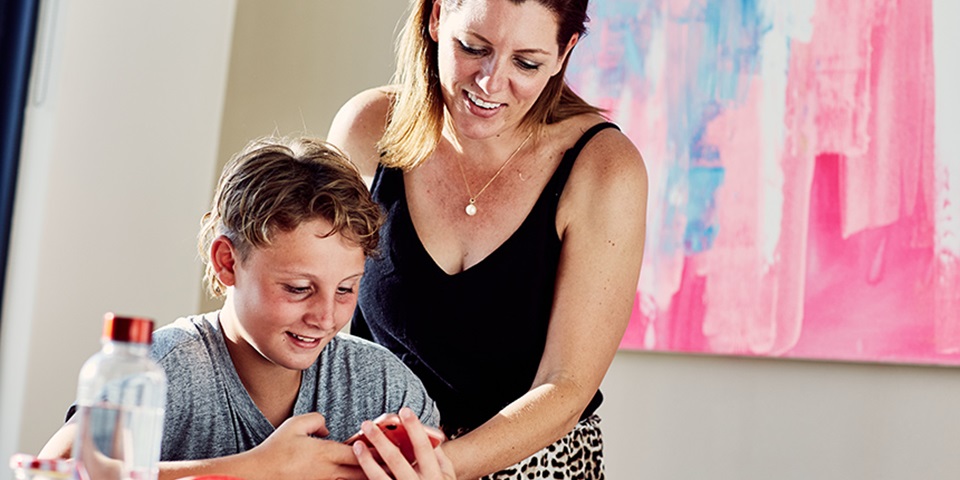Blog
How to support your child without smothering them

Remember the days of arguing with your toddler about their ability to pour milk from a 3-litre jug? Or what about debating with your 5-year-old about the merits of wearing Dora the Explorer pajamas to kindy?
Those confrontations, while frustrating, were easily managed because the way forward was obvious. Unfortunately, helping your high school student transition to university, and full independence, isn’t so easy.
The importance of parental support
Your child may be full of bravado, or they may be stressing about the responsibilities of growing up. Or, most likely, they alternate between the two. They need to be confident that even though you’re stepping back in your role as a parent, you’re not stepping away. Tell them you’re there to support them in a new capacity as a coach and a mentor, but you’ll always be their parent.
One way to enforce this is by helping your child acquire the skills you’ve always performed for them. Teach them how to iron a shirt, if they don’t already know. Spend time showing them how to prepare easy meals, and even develop a mini-cookbook with the recipes you’ve cooked together. Show them how to vacuum, mop and cut the grass. And because your child is almost surely going to be living on a reduced budget, show them how to shop economically.
How much parental support is too much?
An essential part of growing up, and moving out, is knowing you are responsible for yourself. Your teenager won’t make the transition if you’re always rushing in to save the day for them. It’s hard to stand by and watch your child fail a test or miss an opportunity because they weren’t organised. But it’s often necessary for children to suffer a few minor consequences as they grow away from you.
As they move toward uni, it’s time to let them experience controlled independence. You should not be monitoring their every move, selecting school subjects for them, or pressuring them to complete schoolwork. It’s time to quit commenting on their social media posts and insisting they attend functions that don’t interest them. And whatever you do, it’s time to resign your personal cleaning, laundering, cooking and chauffeuring services.
You will still have occasions to care for your child in the way you’ve always done, but make sure your child doesn’t expect you to do things they should be doing for themselves.
How can parents offer support without being invasive?
Dr Charlotte Keating, a guest speaker the 2019 Murdoch Open Day, told parents one of the best ways you can provide support is to help your child gain perspective. As a psychologist with a PhD in neuroscience, she works with both adolescents and executives so she has a good understanding of both sides of the parent/teenager equation.
Dr Keating offers practical advice for how parents can support their teens. Your role is to help build their confidence in their own ability to manage adversity. One way to do that is to help your child observe and celebrate what’s going well in their life, even if it’s all still a work in progress.
Sometimes it’s hard for parents to know when to push and when to step back. Read more about the best way to deal with an independent teenager.
Blog
How to support your child without smothering them
Series
Posted on
Monday 17 February 2020
Topics